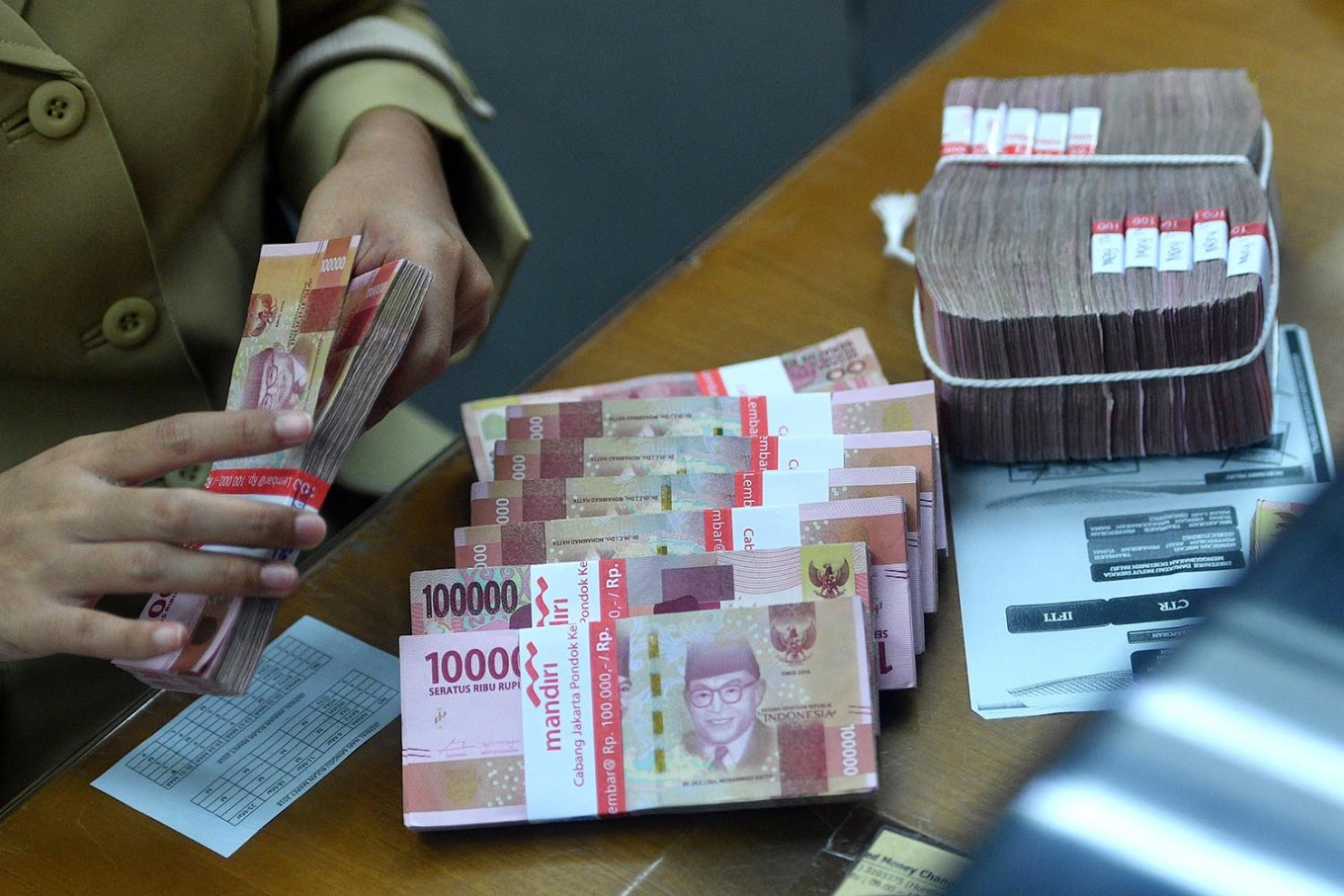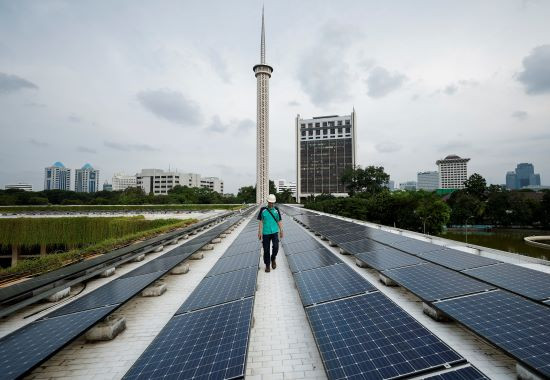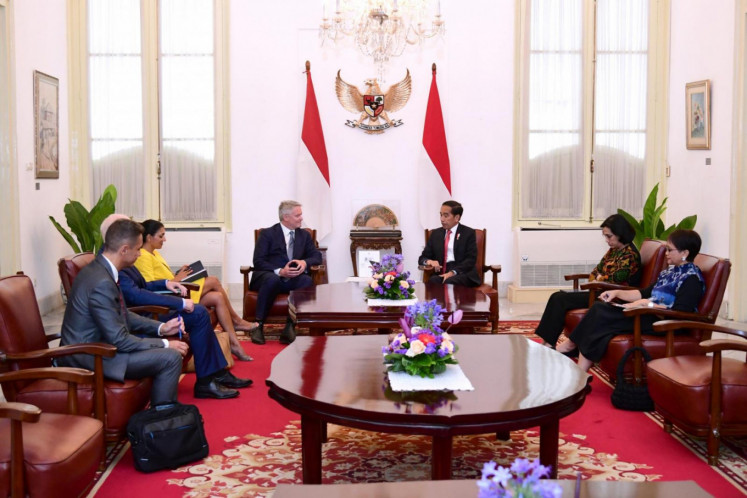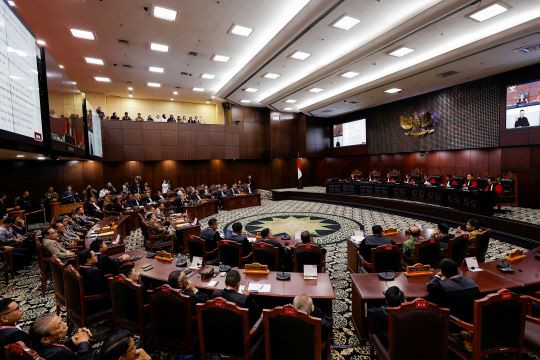The warning signs get stronger
The International Monetary Fund-World Bank Group Annual Meetings in Bali ended on Saturday with stronger warnings of a new financial crisis.
Change Size
 A clerk counts rupiah banknotes at a money changer. (Antara/Sigid Kurniawan)
A clerk counts rupiah banknotes at a money changer. (Antara/Sigid Kurniawan)
T
he International Monetary Fund-World Bank Group Annual Meetings in Bali ended on Saturday with stronger warnings of a new financial crisis as stock markets worldwide continued to dive and currencies in many emerging economies melted down.
As the United States Federal Reserve will continue to contract its balance sheet and raise its interest rate amid the strengthening American economy, while the balance sheets of the central banks in most other countries have not grown as quickly, the global liquidity has become increasingly tighter.
Adding to the heavy clouds already hanging over the world economy are the damages caused by the escalating US-China trade war. All this will heighten volatility in the global financial market and make Indonesia’s fiscal management more difficult due to the high exposure of the state budget to the foreign portfolio funding (bond).
IMF managing director Christine Lagarde predictably was full of praise for Indonesia’s macroeconomic management, seen from such key indicators in debt, inflation, fiscal deficit and overall balance of payments conditions. True, Indonesian macroeconomic fundamentals are now much stronger than during the 1998 Asian economic crisis and 2008 global financial crisis.
Hopefully, the market will differentiate Indonesia, with its strong fundamentals and right policy mix, from those emerging countries classified now as the most vulnerable economies. But external factors have now become so inimical that the risks to economic stability are increasingly high.
As capital flows to Indonesia will remain volatile and central bank balance sheets show significant currency mismatches, further interest rates will be needed, thereby stifling economic growth. Indonesia, like most other emerging economies in Asia, is vulnerable to tighter financial global conditions.
Unfortunately, Indonesia is now gearing up for the April 2019 presidential and legislative elections. In a heavily political year, reform measures that are economically imperative to improve market confidence in the economic fundamentals become politically unfeasible or unacceptable.
Just look at how awkward the government’s stance has been with regards to the wasteful spending on fuel subsidies. While prudent fiscal management requires a tigher lid on fuel subsidies, adjusting fuel prices to the higher international oil price now would be political suicide for the government. Even a small increase in fuel prices will not only set off a lot of political noise by the opposition, but may also trigger new waves of street demonstrations.
The dilemma, though, is how the government would control the subsidy spending to such an extent that the market will remain fairly comfortable with the fiscal deficit, because a higher budget deficit would raise the sovereign risks, and consequently, the costs of government borrowing (bonds) and eventually generate stronger downward pressures on the rupiah. All these repercussions may create a vicious cycle for macroeconomic stability.
But past experiences have also shown that the government, facing severely pressing problems, is usually jolted with stronger political courage to bite the bullet and take painful reforms. We hope President Joko “Jokowi” Widodo will brave a mountain of political protests from opposition parties and take additional reforms in the fiscal, monetary, investment and trading sectors, however painful they may be, to maintain stability.









